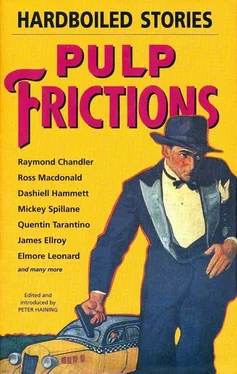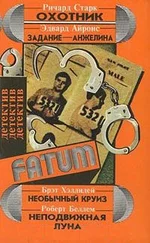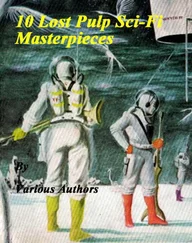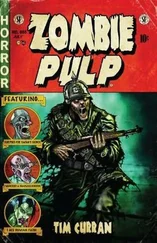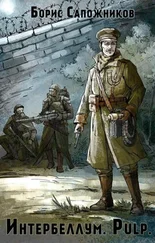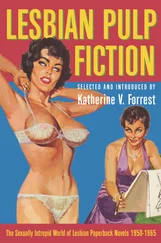The old man started, looked at Al oddly with comprehending eyes, then stepped hurriedly past him.
Renner had been talking to himself for over an hour when the door opened, and Calotta was there. So was Al. And the sharp boys.
‘What do you call this?’ Renner said.
‘It’s payday,’ Al said.
Calotta looked sore and mean, but as he walked into the office he took out a cheque book. As he made out a cheque for a thousand dollars he said, ‘Any other guy I’d bump off, Reid. But I’ve always appreciated brains, and that’s why I’m taking this the right way. I made a bargain with you and I’m keeping it. I told you to find out who killed Dominic. And I told you to keep the cops strictly out of this.’
‘And the only way I could keep the cops out of it was to knock you cold before you got nasty with the gun,’ Al said.
‘That’s right, Reid,’ Calotta said. He handed Al the cheque. ‘You found out who killed Dominic, and you kept the cops out of it, and I’m paying you off. But now, Reid, I’m going back there and I’m getting hold of the old guy!’
He went out and the sharp boys followed him.
Fifteen seconds after the door closed, Renner said, ‘I don’t get it.’
‘It’s what you call a fair bargain,’ Al said. ‘And now it’s closed. But it’s a shame that Calotta don’t know about the old guy. He jumped out of that sixth-storey window just before Calotta came to.’
Renner shrugged. ‘You can give me details later,’ he said. ‘Right now we better hurry and cash this cheque. I don’t trust them crooks.’
The Frightening Frammis
Jim Thompson
The term ‘grifting’, to describe an American form of confidence-trickery — the art of living off gullible people — has become widely known recently due to the critically acclaimed movie The Grifters (1990), starring Anjelica Huston, John Cusack and Annette Bening, which has also at last brought international recognition for another remarkable pulp writer, Jim Thompson. Ignored for years, his stories lost in old magazines and 29 ephemeral paperbacks, Thompson’s work has now been rediscovered and largely republished, earning the most stunning accolades. Nigel Algar, introducing a tribute to the author at the National Film Theatre in 1990, declared, ‘Jim Thompson did not so much transcend the genre of mystery fiction as shatter its conventions’, while the Sunday Times felt he was ‘a great American original’. Ian Penman of The Independent stated even more unequivocally that he was ‘a king of pulp fiction’.
Like The Grifters, several of his other novels have been filmed — notably Pop 1280, about a corrupt, cowardly policeman who goes berserk, which Bertrand Tavernier made in France in 1972 as Coup de Torchon (the French having been among the first to recognise Thompson’s talent); The Killer Inside Me (1975), with Stacey Keach, which Stanley Kubrick has called ‘probably the most chilling and believable first-person story of a criminally warped mind that I have ever encountered’; and The Kill-Off (1989), starring Loretta Gross as an evil woman spreading a web of corruption in a shabby seaside resort with her malicious phone calls. The writer who was once dismissed as just another trashy exponent of the ‘I-kicked-her, it-felt-good crime-writing school’ (to quote the Sunday Times again) is now becoming the subject of academic theses, as well as being identified as a major source of inspiration for the current leaders of the hardboiled genre, Elmore Leonard, James Ellroy and Quentin Tarantino.
James Thompson (1906–1977) was born in Anadarko, Oklahoma, the son of an oil man who spent his money as fast as he earned it, forcing young Jim to seek early employment. After a succession of jobs including truck-driving, debt collecting, hotel bell-hop and doorman, he decided like many others of his generation to try writing for the pulps. He found receptive editors on a variety of magazines, ranging in subject-matter from Westerns to Southern rural dramas and crime fiction. It was not until he was 43 that Jim Thompson wrote his first novel, Nothing More than Murder, which was to prove his one and only hardback publication. Between 1949 and 1959 he produced the bulk of his paperback fiction — including five novels in 1953 and the same number the following year — as well as writing several film scripts, including two with Stanley Kubrick, The Killing (1956) and Paths of Glory (1957), and episodes for TV series like McKenzie’s Raiders.
Since Thompson’s death, not only has there been a resurgence of interest in his work, but legends have grown about his drinking and writing habits. (One such story maintains he wrote the classic Pop 1280 in two weeks to fit an already commissioned cover, and was paid a fee of $1,000 which he promptly drank away in a protracted binge.) The short story here first appeared in one of the early issues of Alfred Hitchcock’s Magazine (February 1957) and features Mitch Allison, a cynical, hardbitten con man, who is as memorable in his way as any other in Jim Thompson’s unique gallery of low-life characters.
* * *
For perhaps the hundredth time that day, Mitch Allison squared his shoulders, wreathed his face with an engaging grin and swung his thumb in a gesture as old as hitch-hiking. And for perhaps the hundredth time his appeal was rudely ignored. The oncoming car roared down on him and past him, wiping the forced grin from his face with the nauseous blast of its exhausts.
Mitch cursed it hideously as he continued walking, damning the car’s manufacturer, its owner and finally, and most fulsomely, himself.
‘Just couldn’t be satisfied, could you?’ he grumbled bitterly. ‘Sitting right up on top of the world, and it wasn’t good enough for you. Well, how do you like this, you stupid dull-witted moronic blankety-blank-blank!’
Mitch Allison was not the crying kind. He had grown up in a world where tears were more apt to inspire annoyance than sympathy, and a sob was likely to get you a punch in the throat. Still, he was very close to weeping now. If there had been any tears in him, he would have bawled with sheer shame and self-exasperation.
Less than a day ago, he had possessed almost twenty thousand dollars, the proceeds from robbing his wife, swindling the madam of a parlour house and pulling an intricate double double-cross on several ‘business’ associates. Moreover, since it had been imperative for him to clear out of Los Angeles, his home town, he had had a deluxe stateroom on the eastbound Super Chief. Then...
Well, there was this elderly couple. Retired farmers, ostensibly, who had just sold their orange grove for a five-figure sum. So Mitch had tied into them, as the con man’s saying is, suggesting a friendly little card game. What happened then was figuratively murder.
The nice old couple had taken him like Grant took Richmond. Their apparently palsied hands had made the cards perform in a manner which even Mitch, with all his years of suckering chumps, would have declared impossible. He couldn’t believe his own eyes, his own senses. His twenty grand was gone and the supposed suckers were giving him the merry ha-ha in a matter of two hours.
Mitch has threatened to beat them into hamburger if they didn’t return his dough. And that, of course, was a mistake, the compounding of one serious error with another. For the elderly couple — far more practised in the con than he — had impeccable references and identification, while Mitch’s were both scanty and lousy.
He couldn’t establish legitimate ownership to twenty cents, let alone twenty grand. Certainly, he was in no position to explain how he had come by that twenty grand. His attempts to do so, when the old couple summoned the conductor, had led him into one palpable lie after another. In the end, he had had to jump the train, sans baggage and ceremony, to avoid arrest.
Читать дальше
